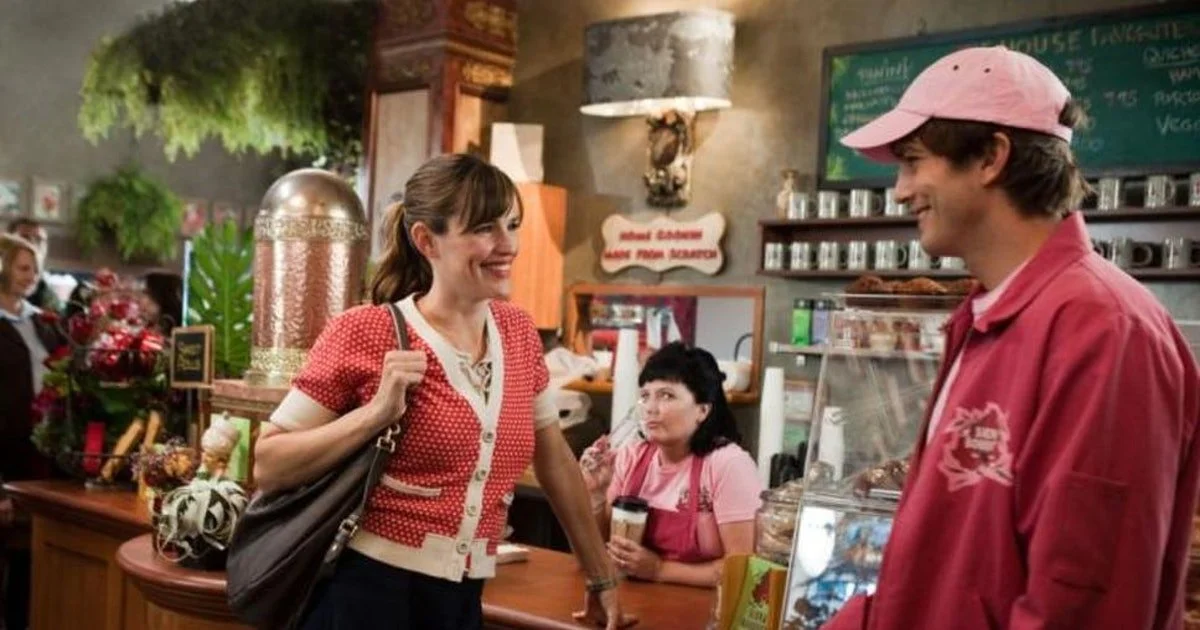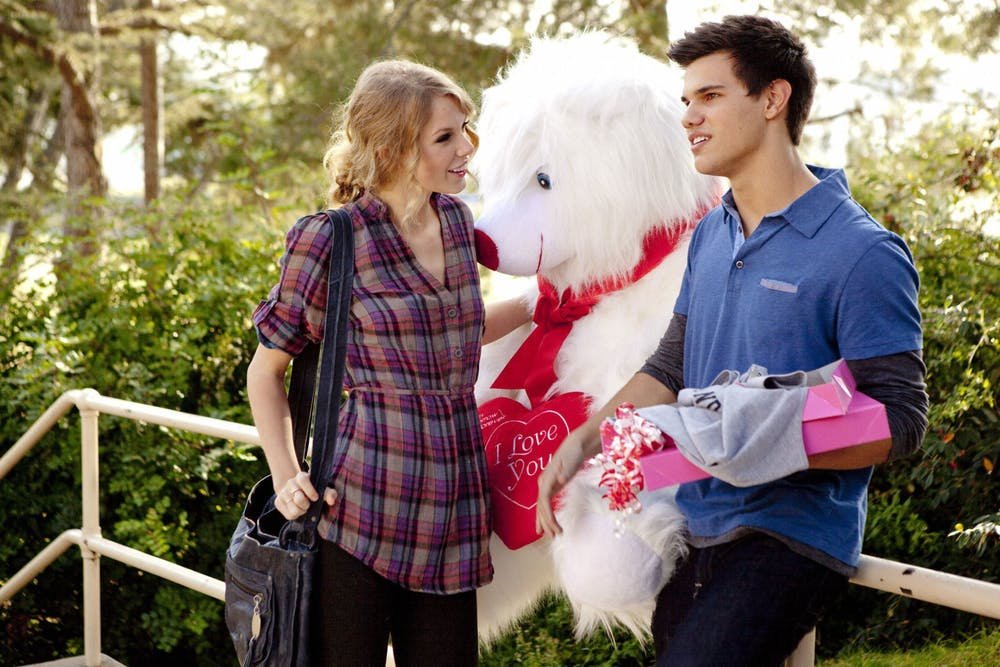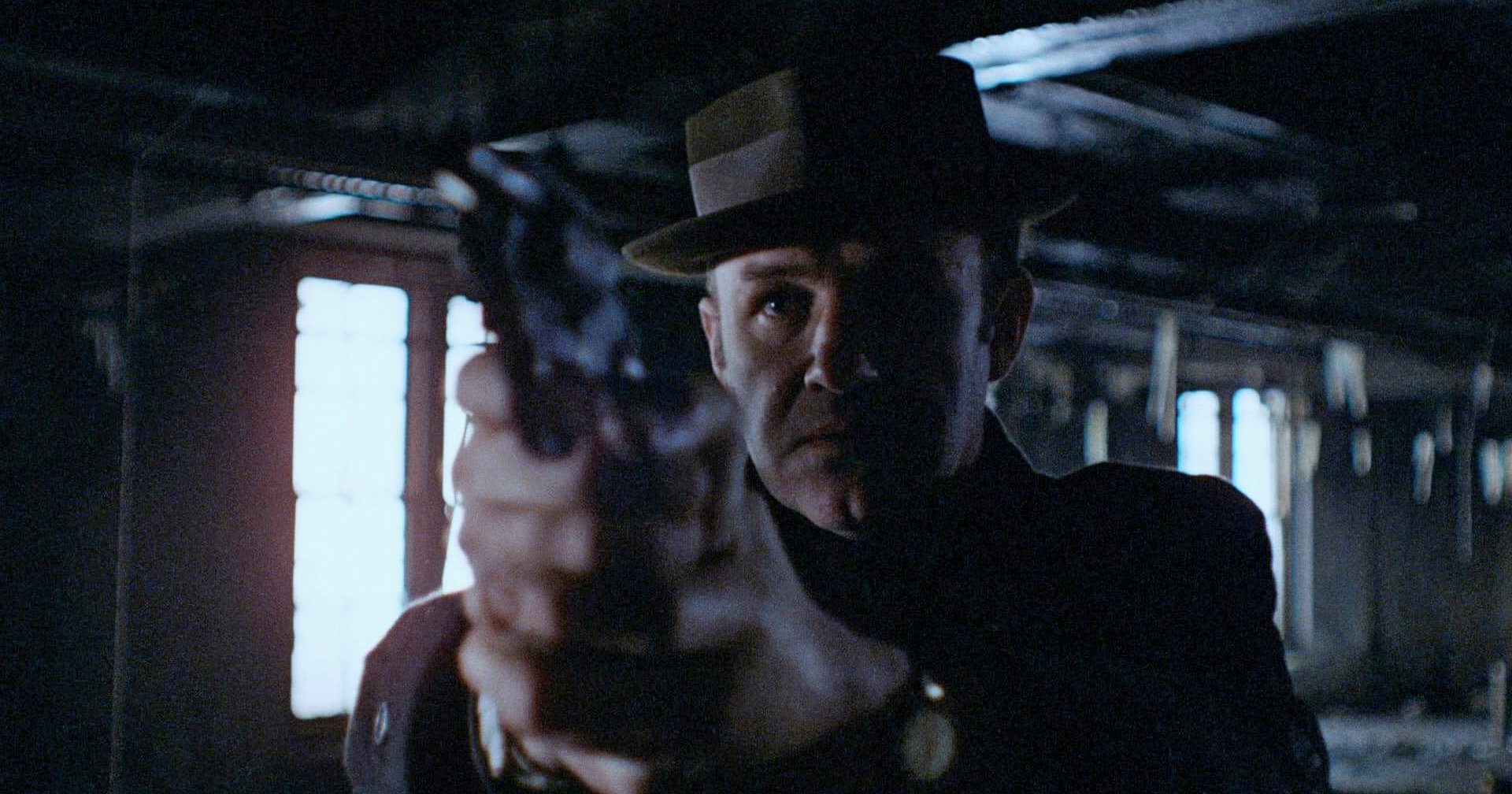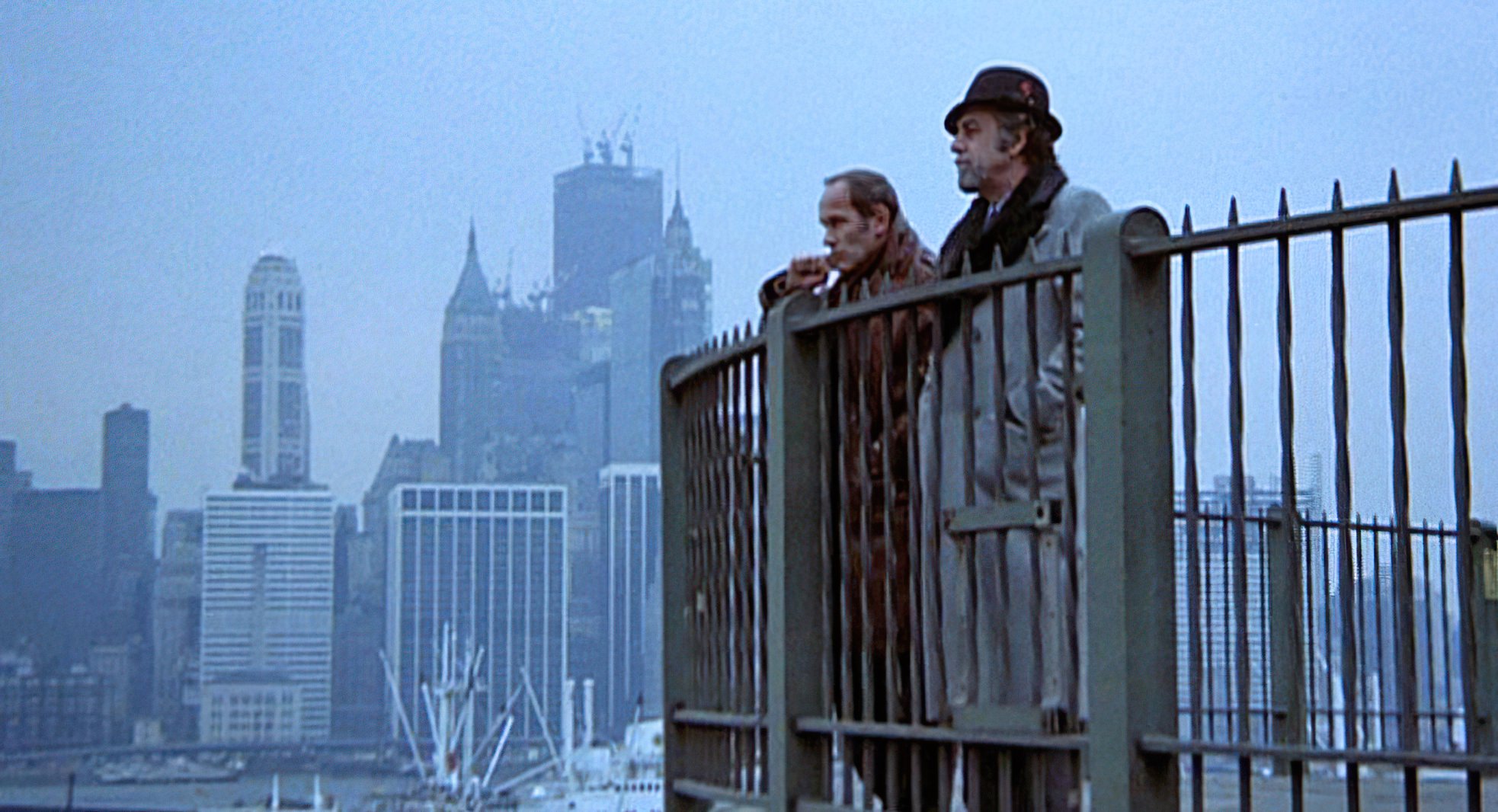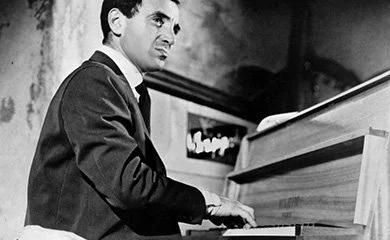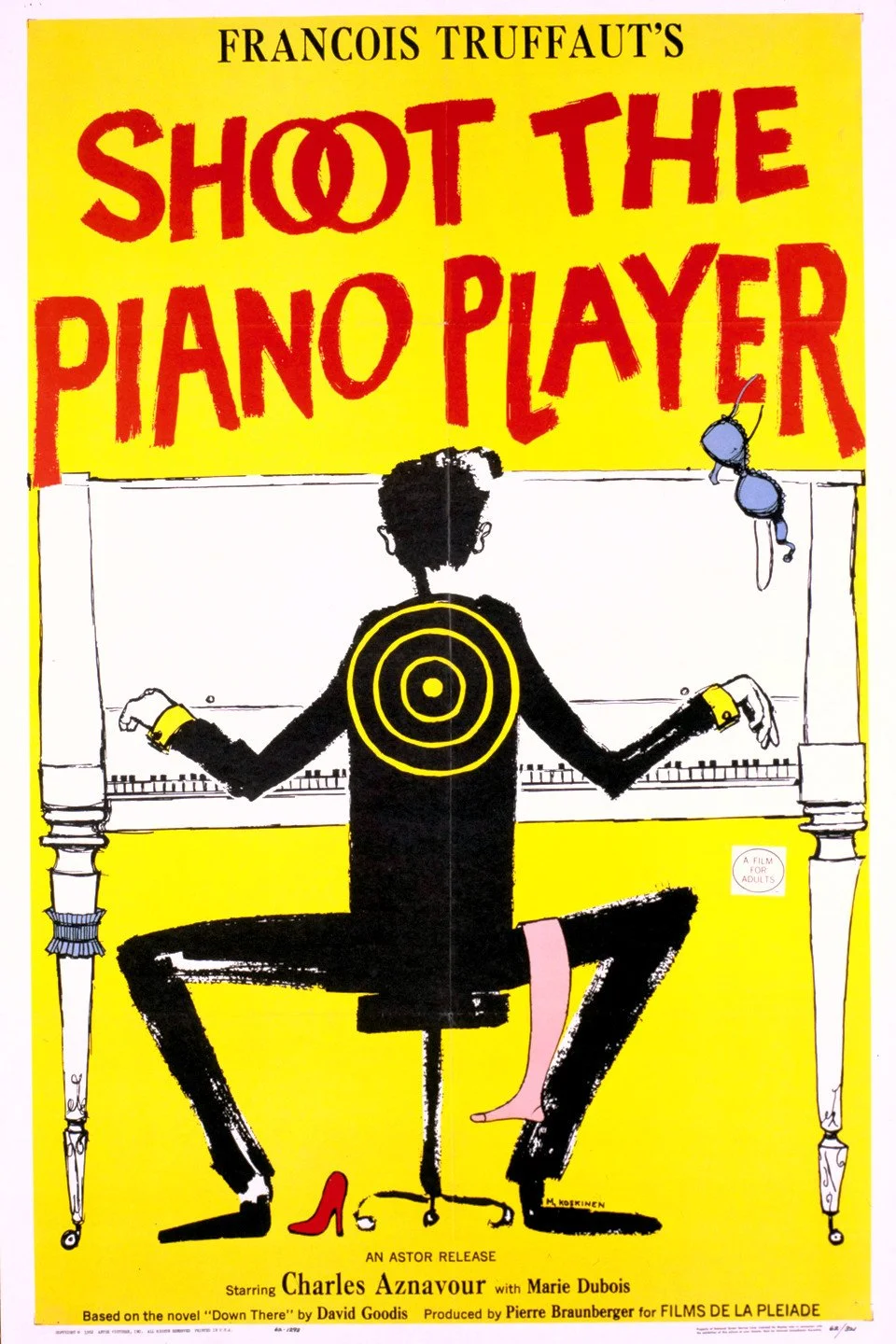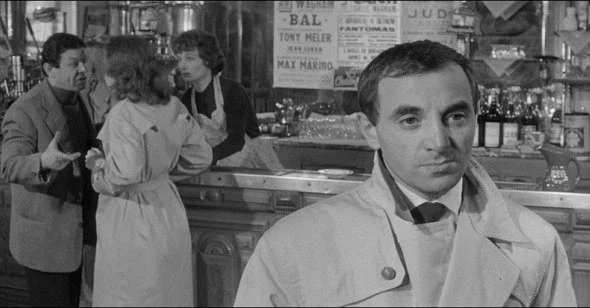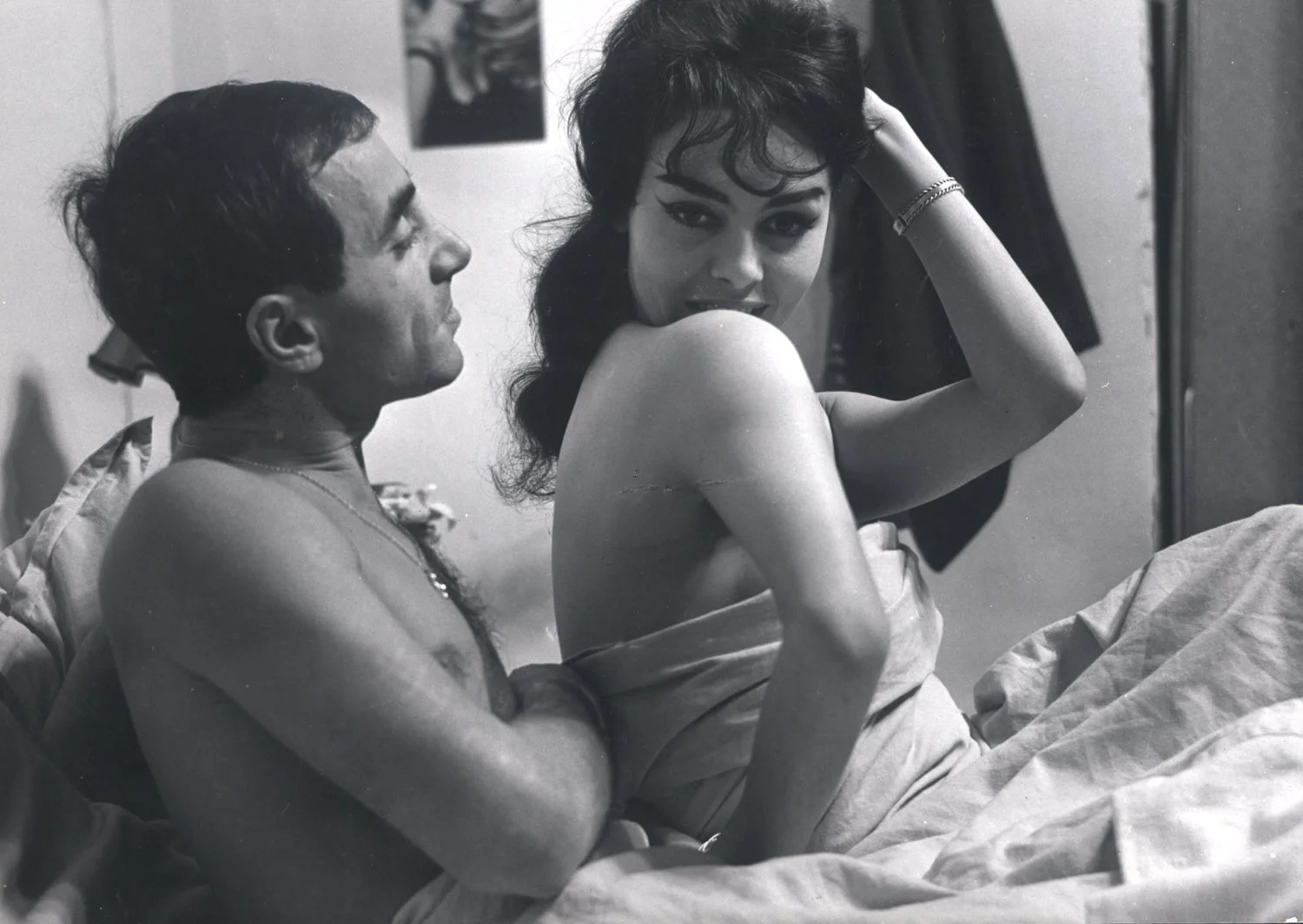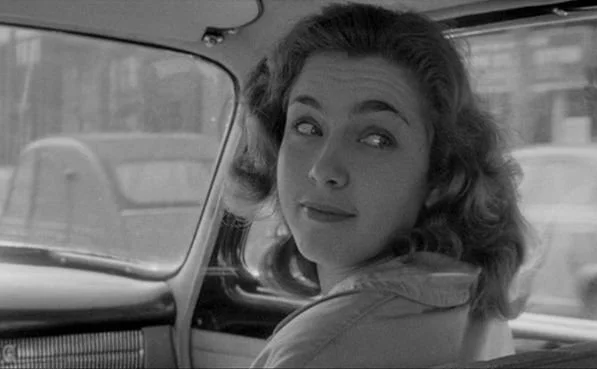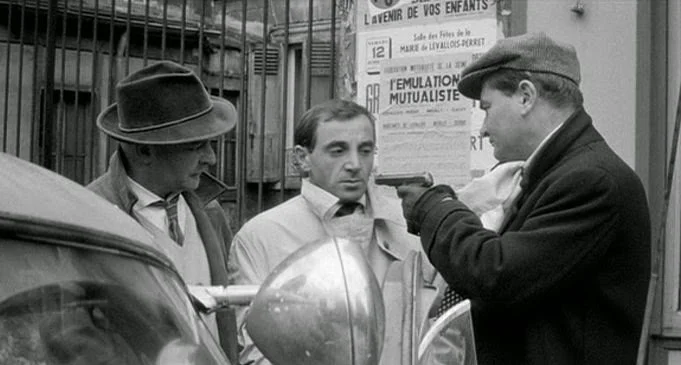Recent Articles
FOUR WEEKS OF MAY: THE HEARTBREAK KID
Men are the worst.
It’s a thought as old as the earth itself, and the reality of that statement is something that society is still currently trying to grapple with in real time (and maybe not doing such a wonderful job at it). But, look, it’s true. Certainly everyone gets anxious and insecure at some points in their lives. But there’s something about how specifically male insecurity and anxiety manifests itself that can be simultaneously interesting and infuriating. It seems like female insecurities manifest in damage done insularly, the type done to the self. Male insecurity tends to lead to outward damage, the type that’s done to other people.
Hilarious, right? We all laughing yet?
I say all this because, on rare occasion, you happen to run into a film from fifty years ago that shines a light on this concept of male insecurity so succinctly and precisely WHILE somehow managing to stay sharply, acidly funny and oddly poignant throughout its 106 minute runtime.
Naturally, it was directed by a woman.
Let’s dive into THE HEARTBREAK KID.
THE HEARTBREAK KID (1972)
Directed by: Elaine May
Written by: Neil Simon
Starring: Charles Grodin, Cybil Shepard, Jeannie Berlin, Eddie Albert
Released: December 17, 1972
Length: 106 mins
Lenny Cantrow (Grodin) and Lila Kolodny (Berlin) are a pair of newlyweds a few days into their cross-country honeymoon. Lenny isn’t feeling so great about it, now that the luster and shine of the wedding is starting to fade. He’s noticing things about Lila he didn’t before. Her sloppy way of eating egg salad, for instance. Or the way her skin easily burns in the sun. The reality of “til death do us part” is starting to hit him in his soul, and it’s starting to eat at him immensely not even a week in.
Once he runs into Kelly Corcoran (Shepard), a beautiful, young, leggy blonde, on a Florida beach, Lenny becomes bound and determined to woo her, in defiance of all logic or respect to his new bride. Kelly seems to be into him, but her father (Albert) remains completely unimpressed. THE HEARTBREAK KID becomes a long race to the altar as Lenny has to maintain his pursuit of Kelly while still keeping his honeymoon going smoothly. The script, a Neil Simon adaptation of a Bruce Jay Friedman short story, firmly establishes its main character as an unabashed skunk, a man who only decides to talk to his wife about ending things once he has no further choice, a man who weaves lies that barely make any sense and only skate by because his bride idealizes the idea of being married to him beyond all reason (in the way only the young can).
There’s no real getting around it: Lenny is a goddamn monster who’s reckless with the heart of a woman whose only definable crime is being normal. However, he’s nevertheless presented with honesty and wit. Thus, you as the audience are faced with the sudden reality of, if not actively rooting for Lenny, at least sort of hoping he gets egged on so you can watch him dig himself deeper and deeper into his scheme.
This kind of duality (serious scenes presented as comedy) is sort of typical of Neil Simon material. Take something like BAREFOOT IN THE PARK, a play about a pair of newlyweds who are essentially fighting the entire time. The thing about stuff like this is that the only way for it to work is for everybody involved in the production (actors, producers, the director, costume department, everybody) to be on the precise wavelength that the script demands AND have the ability to execute on it. In the example of BAREFOOT, if the fights are played too realistically, this comedy all of a sudden becomes an unpleasant, uncomfortable drama. Play it too over-the-top “funny”, however, and the play collapses entirely, the characters nothing more than broad and un-relatable caricatures.
So it goes with THE HEARTBREAK KID, which is threading such a small and tight needle. The entire movie hinges on Lenny being driven almost entirely by id and the need for sexual conquest and validation WHILE still staying likable to your audience (I wouldn’t be surprised if some people feel the movie doesn’t actually thread it successfully). His complete and total terror at staring down the barrel of forty or fifty years with his new bride and his weaving of his increasingly outrageous lies to her in order to keep spending time with Kelly should be funny, rather than reprehensible (which, of course, it is).
This requires absolutely nailing your choice of leading man. If he plays the nastiness too realistically, the movie becomes unwatchable. However, if the comedy is approached as too broad, the movie flatlines. Although we laugh at him, we ultimately have to believe and feel Lenny’s internal tension, or else there’s no reason for him to be doing what he’s doing. It’s a pivotal casting decision.
Enter Charles Grodin.
We’ve talked about Grodin in this space a little bit before. Specifically, I’ve previously talked about him hosting the 1978 Halloween episode of Saturday Night Live, maybe one of the greatest nights of the show ever (the whole breakdown is here, but the TL;DR version is that the whole episode hinges on a meta bit that Grodin missed dress rehearsal and now has to fumble his way through all of the night’s sketches). He also appeared in movies that have either become cult favorites (CLIFFORD) or childhood staples (BEETHOVEN). However, I’d argue he made the bulk of his career off of perfecting a “prickly asshole” persona on late night shows, sparring with Letterman and Conan for years.
Well, you could consider THE HEARTBREAK KID the starting point of that acidic persona. I legitimately don’t know who else could have done this role, either now or in 1972 (I know there’s a 2007 Farrelly Brothers remake starring Ben Stiller. I haven’t seen it; it’s possible it’s good, though I have my doubts. But I don’t think that Stiller is quite right, as funny as he often can be). Grodin just presented himself as so unassuming and normal, at least in relation to other movie stars at the time. But he also knew how to express every thought and gear turn inside his head without doing much with his face at all. This kind of thing allows him to practically get away with murder, comedically speaking. He makes breaking a woman’s heart and bringing her to tears seem like the funniest shit you’ve ever seen. That’s comedy magic, baby.
Grodin as Lenny is funny in the way that Jason Alexander was funny as George Constanza. You both simultaneously hate his guts AND eagerly await him continuing to spin plates in anticipation of everything collapsing. Actually, I thought about George and Seinfeld a lot while watching THE HEARTBREAK KID. Doesn’t the whole “I got into an accident last night” set of lies feel like a George bit? Doesn’t explaining his beach tan away by explaining he had to sit on the steps of the courthouse for hours feel like something only a Constanza could have come up with?
The supporting players are also perfectly cast. Cybill Shepard I’ve long been familiar with, and she’s someone I honestly hadn’t thought much of. But she makes for a good straight woman against Grodin’s schemer. Kelly’s role is essentially to be this perfect girl for Lenny to lust after, but I think it’s crucial that the movie presents her as a real person. She goes to a good school, she’s obviously intelligent, and her sexuality is implied rather than displayed, which prevents her from just being a sex object. This is where I think May’s touch and eye becomes so crucial; the scene where Lenny and Kelly play the “no touching” game could have easily been presented as salacious and leering in a time when mainstream movies were starting to push and experiment with how sex would be displayed on camera (same year as LAST TANGO IN PARIS!). Instead, everything is cut just so that you remember more happening than there really is.
I wasn’t familiar with Jeannie Berlin at all, to the point that I didn’t know until sitting down to write this that she is in fact Elaine May’s daughter, which clarified a lot for me. In fact, this is the only major work I’ve seen her in. She’s great! Again, Lila’s only real sin in Lenny’s eyes is just not being an unattainable supermodel. She gets bad sunburns! She’s a little messy! (One might argue that Lenny considers her too Jewish, but I am not nearly adept enough at untangling the film’s Jewish/WASP politics; the good news is that there are plenty out there who are, and you should definitely give them a read.)
Like many in this film, the role of Lila is precise and deceptively difficult. “Be normal” might be the single most difficult assignment a performer can get. You’re basically telling an actor not to act. Yes, it’s funny to see her miss a spot when she’s wiping her mouth, but the only way it remains so is if she’s nonchalant about it. Berlin understands that so well, and plays the reality of everything so honestly that it makes Grodin’s frustration during that famous dinner scene so much funnier. It’s no surprise she earned a Best Supporting nomination at that year’s Academy Awards.
Eddie Albert also snagged a Best Supporting nomination, eventually losing out to Joel Gray for CABARET (I mean, what are you gonna do?). Albert’s role is equally as non-flashy as Berlin’s, and I have to imagine the Oscar nom was built off the back of the scene at the end where Mr. Corcoran tries to buy Lenny out and make him go away (“I’m a brick wall!”). It’s a great scene, Lenny’s “final boss” of sorts, as the one guy he can’t bullshit. Albert, of course, is probably best known from GREEN ACRES and movie work like (oh hey!) ROMAN HOLIDAY. His veteran presence is wonderful here, too, as you keep waiting for him to take a swing at Grodin.
The thing about this movie, which is sort of a hard thing to admit, is that May and Simon’s analysis of the fragility of the male ego is so on point. I’d venture to guess there’s a variant out there in the multiverse of every man on the planet that approaches life the exact same way that Lenny does here. Sometimes the immediate next step of committing to a goal is dealing with the regret of having committed to it. The only real way for men to win at life is to make sure that version of him remains in the multiverse. Lenny makes it his prime timeline.
To that end, the movie surprises by not necessarily ending in a total collapse for Lenny (perhaps that’s the biggest difference between him and the George Constanza character). Actually, he more or less accomplishes his goal of winning Kelly’s hand in marriage, even resisting her father’s bribery offer. Even the presumed punchline of Lenny immediately having a panic attack about spending his life with Kelly, the allure of a lusty romance forever punctured, doesn’t quite materialize.
Instead, the dark joke of THE HEARTBREAK KID ends up being that Lenny’s success is pyhrric. Yes, he’s secured his beautiful 22-year old bride, and he’s now a part of an elevated society that would previously have been unavailable to him. But…now what? He can’t exactly BS his way through the Corcoran circle of family and friends like he could with Lila and her family. He’s not impressive in any way. Nobody except maybe Kelly really likes him.
By the end of the movie, he’s functionally completely alone, without another card to play or bullet to fire.
As far as the “Elaine” of it all, it seems by all accounts that the production of THE HEARTBREAK KID was relatively smooth sailing, at least as compared to the trouble she had with A NEW LEAF, and the all-out chaos that would ensue with MIKEY AND NICKY and ISHTAR. Maybe that’s why it feels so tight and efficient in comparison to her first film (which really only starts showing signs of meddling towards the very end anyway). There’s a clarity of thought that the movie is able to see through from start to finish. I have to wonder if this movie would have worked at all without her comedic sense at play here.
As it stands, I loved it, and it might be a new entry in my “Favorite Movies” category. For a couple of bucks on Youtube (or for free; there are a couple of champs who have uploaded it in full on that site), you can enjoy it as well.
Film School (Three Day) Weekend: NETWORK Is a Movie A Lot of People Who Haven't Seen It Think They Know
NETWORK may be the source of that famous “mad as hell” speech, but what’s even better is how that fiery, inspiring monologue gets commoditized in Paddy Chaefesky’s darkly satirical world.
I feel like I've been in a cultural funk lately, and this past Super Bowl weekend did very little to pull me out of it.
Like a surprising amount of non-football fans, I find myself drawn to the Super Bowl due to it being perhaps the last remaining thing we all experience in real time together that isn't inherently polarizing (unless you're the type to get completely worked up over a fifteen-minute halftime show, I suppose). So I suppose you could say I "watch it for the commercials".
The thing about that, though, is that the commercials are rarely any good. Hell, I'm not sure one could claim more than ten or twenty in the history of the game are actually all that funny or memorable. Yeah, that's totally debatable and the subject for a whole other article, but I think I'm right about that. I'm absolutely certain that nothing from this past weekend would make the list either.
It's been a long, slow march over the years to get to this point, but essentially every commercial felt entirely algorithm-driven, the results of constant studies of the viewing habits and tweet engagement of the night's now-prime demographic (elder millennials!) and just quadrupling down on the top results. Cast members of The Sopranos were selling cars. Two leads of Schitt's Creek were selling different cars. Larry David and two LeBron Jameses were there to shame you into getting into cryptocurrency, ads which will definitely age well five years from now. Even a seemingly-sweet Chuck E. Cheese-inspired ad about a cute animatronic dog just ended up being a fucking Meta ad.
I know that "cashing in on celebrities who are riding high in order to hawk a flashy product" isn't new to advertising; need I remind that the Flintstones used to stop everything to start selling you cigarettes. But for some reason, this year especially felt bleak. The prospect of taking something that people got legitimate enjoyment out of over the years and shoving it back in our faces to say "Buy cryptocurrency!!! Do it, you coward!!" felt extra-cynical this time around.
So, yeah. Definitely felt a little lost this year. I wish I had known where to turn to in order to hear someone talk more about this phenomenon of taking something organic and commoditizing it in a quest for ratings.
Then I watched NETWORK.
Network (1976)
Directed by: Sidney Lumet
Written by: Paddy Chayefsky
Starring: Peter Finch, Faye Dunaway, William Holden, Robert Duvall
Released: November 27, 1976
Length: 121 minutes
There's a lot about the plot of NETWORK that might not even read as satire in 2022.
It all starts with an established news anchor, Howard Beale (Finch), who learns from his friend, news division president Max Schumacher (Holden), that he is going to be let go from the network in two weeks due to "low ratings". Furious, Beale announces on air the next night that he will be killing himself live on the air next Tuesday. If you're a lost media aficionado like myself, this sounded an awful lot like the Christine Chubbuck story, and I immediately assumed that had happened after this movie. I eventually checked and, nope, Chubbuck's on-air suicide was in 1974 and NETWORK came out in 1976. Whether this was an intentional reference to a horrific story remains unclear but, in a way, it's a natural jumping off point for a bitterly cynical film.
Anyway, this is merely NETWORK'S inciting incident. Ratings jump in anticipation of this suicide, which makes the network reconsider Beale's firing. Alas, even righteous indignation can only hold a nation's interest for so long, and ratings dwindle again. The head of the entertainment division, Diana Christensen (Faye Dunaway), reaches out to Schumacher to help bring viewers back by bringing Beale's show under the entertainment division, rather than the news division.
By the way, I think the state of media is such that I'm not sure having a head of entertainment take over a news division even comes off as a joke nowadays. We openly and willingly acknowledge the enmeshment of entertainment and news now, even as we rail against it. Because the truth is, we kind of like it better that way, right? Even though we long for the days of real news shows, we will still happily watch Rachel Maddow or Tucker Carlson give an impassioned screed about whatever we're supposed to be mad at today (Trump, CRT, Antifa, the post office...the list goes on and on) because it validates us and our opinions. It entertains us. And the thing is, I can feel, literally hear, someone out there going, "come on man, you really think there's no difference between Maddow and Carlson???". And, of course, there are differences is delivery style and tone, but I'd posit that the biggest difference between the two is dependent on what you are currently mad about.
And maybe that's the point. We know to reject all "news as entertainment" shows. Well, except for the ones that entertain me the right way. Those are different.
Anyway, this is all leading to The Scene, the one that everybody knows, even if they haven't seen (or even heard of) the movie. You know it.
Watching NETWORK from start to finish for the first time, it struck me as funny that the whole "I'm as mad as hell and I'm not going to take this anymore" speech has kind of become this shareable meme now that we share when, again, we're bitching about whatever cable news network we're willingly watching is pissing us off that day. And there's a reason why the monologue endures over 45 years later. First, who doesn't like a good old-fashioned fire-and-brimstone rant? Second, you couldn't argue it's gotten less relevant to the issues facing society today. Lines like "everything everywhere has gotten crazy, so we don't go out anymore; we sit in the house and slowly the world we are living in is getting smaller" hit especially hard in a post-March 2020 world.
The whole speech is real, organic, and delivered by a man that truly does feel like the world has gone mad, the walls slowly collapsing in on him. It's the kind of moment you rarely see in real life anymore, and it's a scene that probably single-handedly won Finch his posthumous Oscar (he sadly died a few months after NETWORK's release).
But turning this moment into an out-of-context Sorkin-eqsue speech about the state of the world, something you can share with a click and a caption like "THIS" or " Watch this as many times as you need to until you get it!!!" doesn't feel quite right, does it?
That's because it shows either a lack of awareness, or a willful ignoring, of what happens immediately after this speech is given in the movie, the moments after Howard Beale seemingly gets everyone in the country to yell out of their window, "I'm as mad as hell and I'm not going to take this anymore!".
Because what happens is that Diana gets thrilled at the ratings this speech has provided the network and now wants to expand Howard Beale and turn him into a mascot of sorts, an anchor that can only bring the ratings up and up, ever higher. The one real thing that has happened on that station in who knows how many years, and they're going to chase that high right into the ground.
Thus, The Howard Beale Show is borne. Although the show features, among other things, a psychic, Beale remains the star, and he gives his screeds to a live audience like he's Brother Theodore. The audience responds in kind by yelling "I'm as mad as hell and I'm not going to take this anymore!", this very real moment now reduced to a catchphrase along the lines of "set it and forget it".
Look, the movie goes on from there (weaved into the plot is a terrorist group known as the Ecumenical Liberation Army, but...needless to say, I loved NETWORK. Pretty much every major player in this got nominated for an Oscar that year, including Ned Beatty in a glorified, but wildly memorable, cameo where he lays down the law to Beale (as always, money talks). It's very obvious this movie struck a nerve in the mid-70's. And why shouldn't it have? In a post-Vietnam and Watergate world, with major cities like New York on the verge of bankruptcy, people were pissed. And here comes a Hollywood movie that spoke to all of that, a movie just as bitter and acidic in tone as something like TAXI DRIVER, but in a totally different direction.
And, of course, it goes without saying that I doubt NETWORK is a film that could get made today. That gets thrown around a lot, but I think it's really true on this one (I could maybe see it becoming a limited-series prestige television event, and maybe there's a beauty in that). In a world where there are now, like, four major studios, at least one of which having amassed its vast library through corporate consolidation (a topic which is of great importance to the story of NETWORK), I can't really imagine anything like this getting approved at a corporate level without its satire getting defanged, or at least redirected.
Yeah, I guess I am still in a bit of a cultural funk.
Maybe the only thing that holds NETWORK back just a little is the tone the movie takes with the romance between Max and Diana. There's really nothing wrong with it on paper; Holden is fantastic as always and manages to make his character heartbreaking, even as he's the one breaking hearts (although it feels like it's from a different movie, the scene where he confesses his affair to his wife, played by Beatrice Straight, is stirring). Dunaway is equally adept at making Diana acidic and cynical throughout the whole affair, which makes the satire still sing, the concept of "getting in bed with the devil" made literal.
But the storyline as presented feels like it has one foot firmly planted in old Hollywood, relying on good old-fashioned star power and melodrama. This isn't an inherently bad thing; I love that stuff! It's just that NETWORK as a whole feels very New Hollywood to me, with a rebel spirit you didn't see much of in the decades before or since, and I remain unconvinced that the two flavors can really meld in a satisfying way (it's one of the many reasons I didn't really like Scorsese's NEW YORK, NEW YORK). Thus, these sequences feel just a little out of step with the rest of the movie, which is often gleefully abrasive.
Anyway, look. NETWORK is available for streaming on HBO Max right now (speaking of things that only exist due to insane corporate consolidation), which presents a prime opportunity for you to watch it for the first time if you never have, or revisit it to discover that, yes, it really does hold up after all these years; it might even be better, to be honest. It will at least allow you to see the full context of a legendary film speech and the full, black-hearted cynicism behind it.
And isn't that what life is all about?
A Very VALENTINE’S DAY Special!
NETWORK may be the source of that famous “mad as hell” speech, but what’s even better is how that fiery, inspiring monologue gets commoditized in Paddy Chaefesky’s darkly satirical world.
In which I make my wife watch the 2010 ensemble comedy VALENTINE’S DAY instead of doing something nice.
Richard Curtis' LOVE ACTUALLY was released on November 14, 2003 and seemed to immediately burrow its way into popular culture. Whether it was as a form of ironic derision or as a reference point that exists to this very day, its ensemble cast and very British sensibility ensured its place in rom-com history (even if Emma Thompson's story gets no satisfying conclusion whatsoever).
Before he passed away in July of 2016, Garry Marshall, the man behind the creation of legitimate classics such as Happy Days, Laverne & Shirley and Mork & Mindy, was hard at work to the very end to create an American version of LOVE, ACTUALLY, only with focus on some lesser-celebrated holidays. Mission accomplished and, arguably, over-delivered: in true "everything is bigger in America" fashion, he managed to make an entire unofficial trilogy of holiday ensemble films. They're all insane, and I thought it would be a fun treat to review all three over the course of the year.
However, I couldn't possibly take on such a task by myself. No, to take on such masterpieces, I was going to need the assistance of a dear loved one. I was going to need to look across the couch and get my wife, Trina, to help me out with breaking down the nuttiness of the Garry-verse.
We're going in order of the calendar, as opposed to release date. First up, then, is the sugary-sweet VALENTINE'S DAY.
VALENTINE’S DAY (2010)
Directed by: Garry Marshall
Starring: too many to count
Written by: Katharine Fugate, Abby Kohn, Marc Silverstein
Length: 124 minutes
Released: February 12, 2010
R: VALENTINE'S DAY, the first in the late director Garry Marshall's holiday trilogy, was released on February 12, 2010, debuting over two other major openings that week; PERCY JACKSON AND THE OLYMPIANS: THE LIGHTNING THIEF and Universal's THE WOLFMAN, starring Benicio Del Toro. To date, it is the eighth-highest opening in February ever, along with the fifth highest-grossing President's Day weekend film (in front of it: BLACK PANTHER, DEADPOOL, FIFTY SHADES OF GREY and SONIC THE HEDGEHOG.
These extremely cool and interesting records aside, what did you think about this two-hour star-studded debut to the first real commercial holiday of the calendar year? Are you regretting agreeing to this already?
T: First off, I never regret an opportunity to complain about things. You should know me better than that by now.
R: My apologies.
T: Movies already have a challenge of making me care about the characters and the story when it’s just one plot line. In a way, I admire these types of movies that say, “I have 12 different Valentine-adjacent ideas, but I don’t really want to commit to fleshing out any one story in particular, so I’ll just tell all of them at once! It’s too big to fail!”
R: Yeah, it's a very "throw everything against the wall and see what sticks" type of affair, up to and including the cast. There's almost too many players in this get into, especially when they all seem to serve the same essential function as each other. We'll get into a couple cast members in specific, but I want to jump immediately into the real reason I brought you into this. Because, although there are several women in this that the movie could have chosen between to be the lead, rather than smash them altogether (Anne Hathaway, Jessica Biel, Jessica Alba, Julia Roberts all appear in this!), I wanted to give you your long-awaited bully pulpit on the individual that is probably, for all intents and purposes, the main character of VALENTINE'S DAY.
I just put ninety seconds on the clock. Trina, what are your thoughts on Jennifer Garner?
T: Jennifer Garner is the worst.
Okay, if I have a full 90 seconds…
I’ve seen two Jennifer Garner movies (this and DAREDEVIL; the range!) but I’ve seen enough trailers for Jennifer Garner movies to know she’s the worst. She speaks all of her lines either in a little girl voice, or in a “I’m a little girl but I want to be Taken Seriously” voice. Both are bad. You’re a grown woman, Jennifer! 13 GOING ON 30 was a movie, not a lifestyle suggestion.
AND PEOPLE LIKE IT, RYAN. People who are out there in charge of important decisions and responsibility see a trailer featuring Jennifer Garner and go, “oh, that looks good.” Look at minute 1:20 of this trailer, Ryan.
It’s awful. She’s managed to make a career off of being the sweet widdle dew dwop sugar pwum pwincess and has managed to trick people into buying ticket after ticket. Well, not me! She may get my time (that’s worthless), but she’ll never get my money!
R: Aaaand…that’s time! Well done. Do you feel better?
Yeah, besides DAREDEVIL and this, my only real exposure to her was Alias, although I had forgotten she was also in DUDE WHERES MY CAR?, so I guess this counts as a reunion for her and Ashton Kutcher???
Anyway, she sucks and the movie spends way too much time on her teacher character, who’s in love with Patrick Dempsey (I am mostly steadfastly refusing to include character names here), even though he’s secretly still married to his supposedly ex-wife. The whole world seems to revolve around her; Ashton Kutcher is secretly in love with her, a kid in her class is in love with her (technically a spoiler, but it’s a “twist” you would have absolutely guessed within five minutes). You get the idea.
It’s a shame because there are way more insane stories that the movie could have revolved around. Hathaway, for instance, plays a character who conducts a sex phone operator side-hustle from her work cubicle. Queen Latifah plays her boss who, when she finds out about it, turns out to be kinda into it. Shirley MacLaine plays an older woman who confesses an old affair to her husband, then basically forces him in public to get over it the same day.
Then there’s the subplot that most cements this movie as being from early 2010: then-real life couple Taylor Swift and Taylor Lautner play a pair of high schoolers who are in love. And, look, I think we’re comfortable admitting that Swift’s talents aren’t exactly maximized in this. But, I have to ask: of the two ensemble debacles she’s appeared in, do you take her in this or in 2019’s CATS? Or do you just put folklore and evermore back on and call it a day?
T: Okay well in terms of acting, CATS. Hands down. Mostly because that film is so absolutely insane that her appearance as a sexy lounge cat with boobs is one of the milder moments.
Her in this movie feels like the writers just threw in any Easter egg to make it clear that this was Taylor Swift playing Taylor Swift playing a character. I mean this with love, but the Homeschool Energy is very strong in her presence here. And look, Taylor Swift doesn’t need to be a good actress. She just needs to keep writing me music to listen to while sitting alone in the woods. Time spent acting is taking away from where her talents are really needed.
R: I think I'll take CATS, too. A slightly better performance in a much worse movie isn't a bad deal. It doesn't help that VALENTINE'S DAY was released during a period of her career I don't find particularly interesting (this seemed to be the tail end of her "country princess" era; Red and 1989 were still a few years away). Although I had forgotten that "Today Was a Fairytale" technically came from this movie's soundtrack. More of a fun fact than anything else.
We've been picking on the gals, but the men have just as much of an insane time here as well. One of the bigger stars of this movie is Jamie Foxx, who plays a sports reporter named Kelvin who, for whatever reason, gets assigned by Kathy Bates the human interest story of just interviewing randos on the street what Valentine's Day means to them (the twist? Get this, he hates Valentine's Day!). Why the sports guy has to do this goes unexplained.
Do any of the men escape with their dignity intact in VALENTINE'S DAY? For me, I thought Lautner came off okay-ish, although that might just be my residual respect for him more or less giving it all up after TWILIGHT rubbing off. He seems happy.
What about the other dudes? Bradley Cooper's airplane passenger who makes nice with Julia Roberts' soldier character? George Lopez, business partner and friend of Ashton Kutcher? Kutcher himself? Patrick Dempsey's evil doctor? Eric Dane as the football player who comes out of the closet during a rooftop press conference? Topher Grace, who works in the mail room and has to be told that today is Valentine's Day?
T: I think Bradley Cooper was probably the okay-est, maybe in part because he wasn’t in it enough for the tide to turn, or maybe because I don’t think I’ve ever actively disliked watching him on screen. I do think his scenes with Julia Roberts were..maybe(??) the most enjoyable for me? And by enjoyable I mean that they were just there, and fine, and then over. I’m honestly shocked they managed to write a scene about two strangers meeting on a plan on Valentine’s Day and NOT have them fall in love at 35,000 feet. It was just…normal-ish? Movies should do that more often, says I!
I don’t mind Ashton Kutcher. He had his moment, hasn’t tried for an Oscar, and seems like a genuinely good human being in his free time. But he gets negative points because his character is in love with Jennifer Garner. Request to suspend my disbelief: denied. Sorry, I don’t make the rules, I just happily enforce them in this case.
R: Well, of course, part of the reason Cooper and Roberts don't fall in love is because...well, there's a twist regarding him that I admit I didn't see coming (others may have picked up on it immediately) and thus the one genuine surprise in a movie totally devoid of them. Credit where it's almost due.
If you haven't picked up on it, I also hated this too-long (over two hours!!!) movie. It's ultimately devoid of a real point of view except "isn't Valentine's Day the greatest?" (it seems to exist in a world where society seems to shut down entirely on February 14th to discuss the holiday at length). I don't need it to be deep, of course, but it should at least be fun. Putting this together was the only real fun part about it. Give me character actors getting to do their thing. George Lopez wasn't even funny!
So, really, the only question left to ask is: now having sat through this tribute to one of the last winter holidays we get in the cycle, has it affected your opinion on Valentine's Day at all? Do you like it more? Less? The same? I know for me, it's made me realize that the day is cool and a good excuse to remember to be nice to the people you love, but I ever met anyone in real life that went this hard on V-Day, I really don't know what I would do. Besides worry about them a little. You?
T: I think you’re being extremely kind to say that you took anything away from this movie. Do I have to be mean to you today to recalibrate your outlook? I’d do it, because that’s how much I care.
Suffice to say, no, it did not change my outlook on today. I think it served it’s purpose to run for two hours and give a paycheck to a lot of actors who maybe enjoyed getting top billing for only three days worth of filming at maximum. Oh dear, did I sound cynical? Maybe this movie DID get to me. Am I the Jamie Foxx of our household?
It did remind me that some people buy their partners flowers though. Am I safe to assume those are being delivered today?
R: Answering your questions in order: 1) What would make this any different than any other day, 2) I've long said you and Jamie Foxx are exactly alike and 3) yes, a sad van driven by Ashton Kutcher and George Lopez will be arriving any minute now with flowers that I've ordered. That's, of course, assuming they don't get rear-ended by Eric Dane, causing their loading door to not close right, resulting in a many a bouquet to fall out and spill onto the streets of Los Angeles. If those flowers don't arrive, well, now you know why.
I think that closes the book on VALENTINE'S DAY, both the movie and the day itself. There are still two more of these to come, so be on the lookout in this space the next time a second-tier holiday comes around.
THE FRENCH CONNECTION’S Big Car Chase Still Has Drive
Maecenas faucibus mollis interdum. Nullam quis risus eget urna mollis ornare vel eu leo.
The centerpiece scene of this early 70’s classic still rocks, thanks to the power of drama through action!
Ever since I've made the call to turn this primarily into a space for film discussion a couple of years ago, I've had one constant presence in the comments: a guy I know named Tony, an old colleague from my theatre-doing days, who I remember fifteen or so years ago taking over a Wednesday evening acting class for a few weeks, one that was usually ran by the recently-deceased Edward Claudio (who, if you're not from the area, should be said was a legitimate Sacramento theatre legend that will not be easily replaced, if at all), and used the class as his pulpit for his sermon on acting in film.
I learned a lot from this version of the class (including the realization that I shouldn't act on film). I especially remember Tony walking us through his journey towards realizing the power that great movies can offer a person. As the story went, he was a huge aficionado of stuff like the James Bond series as a lad. That is, until stuff like THE GRADUATE, THE GODFATHER I and II, and DOG DAY AFTERNOON started coming out, and it changed his life forever (the movie that served as the specific turning point eludes me, although I want to say it was THE GODFATHER. Correct me, Tony?). To this day, he will happily tell you that the greatest time in American film history was approximately 1967 through 1980, before the JAWS and STAR WARS-ification of Hollywood ended the party forever. Seriously, you'll have a chance to right after you're done with this.
Well, never let it be said that Ryan Ritter doesn't pander to his audience.
February is going to be 70's New Hollywood Month in this here space!
I might be stretching the definition just a bit with one of the choices but, just like French New Wave Month, the only real criteria is that a) it was made and released during a loosely defined period and b) I haven't seen it. Since I arbitrarily drew a line at pre-1970's stuff, that will mean no GRADUATE or BONNIE AND CLYDE, and I've already seen many of the huge hitters (no GODFATHER, THE CONVERSATION or DOG DAY AFTERNOON, and stuff like TAXI DRIVER has already been covered in this space).
But, also like last month, you're still going to be stunned at the stuff I haven't gotten around to. Let's get started with an immediate huge one, a movie that made a huge splash at the 1972 Academy Awards, winning Best Picture, Best Director, Best Actor, Best Adapted Screenplay and Best Film Editing. A movie whose name you already know from reading the title and clicking on the article, throwing the wisdom of adding an air of mystery to this intro into question....
Let's do THE FRENCH CONNECTION.
THE FRENCH CONNECTION (1971)
Directed by: William Friedkin
Starring: Gene Hackman, Roy Scheider, Fernando Rey
Written by: Ernest Tidyman
Released: October 7, 1971
Length: 104 minutes
I suspect at times that people nowadays view American movies from the 70's with some apprehension, maybe due to it being a particularly favorite time period and genre of....well, "film snobs". "If the guy shitting on me for liking Marvel movies are into it," the thought might go, "it must be pretentious and boring".
But, really, a lot of the really famous ones aren'tpretentious or even particularly esoteric at all? Take THE FRENCH CONNECTION, a movie that I think has honestly aged very little, all things considered. The only thing that may have atrophied over the decades might be people's appetite for rogue "bad cops" nowadays (although I guess we'll see if that truly lasts). But, besides that, this movie really is just a well-made crime action thriller. There are gun shootouts, car chases, drug smuggling, and boozing, womanizing cops and criminals all the way through. Y'know, the good stuff.
THE FRENCH CONNECTION is the story of a New York City detective, Jimmy "Popeye" Doyle (Hackman), and his partner, Buddy "Cloudy" Russo (Scheider), who get tipped off on a huge shipment of drugs being brought into the city in the next couple of weeks. From there, it's a race to track down drug lord Alain Charnier (Rey) before he's able to complete his evil transaction.
It's a movie refreshingly light on backstory or deep character arcs; Doyle does have a story and record to him, and it's significant enough that you completely understand why other cops and superiors are reluctant to trust his instincts on this particular case. But that context is relegated to just a couple of quick lines from other characters; it's not particularly expounded on, and we certainly don't cut away to any flashbacks fleshing things out. That would slow down the action, my friend, and THE FRENCH CONNECTION don't got time for that.
The only thing that might be objectionable to modern viewers might be its pace. Hard as it might be for those who were there at the time to believe, I have no trouble imagining someone walking away from THE FRENCH CONNECTION complaining that it's too slow. And who am I to argue? In the fifty years since its release, action films have gotten impossibly big and fast. Call it the "FAST AND FURIOUS effect"; even that street-racing franchise has morphed over the past decade into essentially MEATHEAD AVENGERS, with car chases that have expanded exponentially in scope with the assistance of CGI and characters now literally going into space.
NOTE: I actually generally love the FAST AND FURIOUS movies; I think beyond all the blatant pro-wrestling-esque stupidity and dumb drama between Vin Diesel and The Rock lies a set of generally well-crafted and well-cast summer movies. They're not all created equally, and I think they've gotten so big that there's nowhere for them to go now, but I need it established that I'm no hater. This isn't Old Man Ryan here. Just that I think once you start overstimulating an audience, it's hard to crank down the dial.
But instead of focusing on the pace of the action, I'd urge a new viewer to instead focus on the craft of it. Because, honestly, once you focus in on it, suddenly its Oscars pedigree becomes pretty clear and justified. THE FRENCH CONNECTION is the kind of movie that should win Best Picture more often, to be frank. Instead of winning its gold with its social themes or huge performances, it does it by knowing exactly how to draw every inch of drama and suspense out of a given situation.
To show what I mean, let's focus on the most famous scene, that car-train chase. Give it a watch if you've never seen it.
It goes without saying, but one of the best things about it is that they didn't have the advantage of computers. Again, I know that's another old-man complaint, and CGI does present other opportunities. But what scenes like this gain from its absence is that, to some degree, what you're seeing is real. Real in a fake movie way, yes, but some human had to strap a camera to a car to achieve that slightly vertigo-inducing weaving through lanes.
But, let's take a look at how the scene builds suspense (Note: to some degree, I'm cribbing my observations about action from an incredible article from Film Crit Hulk, who broke down what makes the action in MISSION: IMPOSSIBLE - FALLOUT work so well. As always, I'm begging you to leave this dumb article to read another, better article. The choice is yours).
Everything seems to flow logically from what's been set up previously, including the fact that Doyle is in many ways a desperate man whose reputation is on the line with this hunch that he's following. From the very start where Doyle commandeers a civilian's car (one of those things I've only ever seen happen in the movies; is this a real thing?) to the end where a hitman ends up dead on the steps of a train station, the whole thing plays out like a short film. Every time it seems like Doyle has a plan of execution to capture an assassin who has hopped on a train to get away, "Frog Two" (the assassin Doyle is chasing, played by Marcel Bozzuffi) manages to get a leg up on him. Doyle runs over to the next station, only to learn that "Frog Two" has commandeered the train and is blowing past all scheduled stops. He has to hustle and play catch-up again.
The problem with commandeering the train, however, is that the train conductor turns out to have a weak heart and panics easily. His response to having a gun repeatedly pointed at his head? He passes out and collapses onto the control panel. The train is now going way too fast with no way to fix it. Now "Frog Two" is in trouble. Now what?
All the while, we get these fast-moving POV shots, from the perspective of either the front of the train or the front of Doyle's stolen car. We're moving forward, always. It doesn't hurt that there are several moments where cars collide in ways that weren't anticipated, even by the film crew. The story of the action is meticulously planned out, but there's an improvisational feel to what actually happens. The result is something that feels just out of control enough (especially a moment where Doyle damn near runs over a woman). It all culminates in a moment that even the police officers on retainer as advisers to the film balked at, claiming it's something that no cop would ever do and claim as an act of self-defense. You watch it and tell me if it even registers as anything to you.
But notice how, throughout the whole thing, which of the two have the leg up constantly changes. It feels for all the world like both the pursued and the pursuer are making it up as they go along, a far cry from the modern "hero and criminal" dynamic in films nowadays, where one always seems to have a master plan that no normal human being could have possibly come up with on their own and failsafes for snags that nobody could anticipate. Adding to all that is the fact that "Frog Two" is established as legitimately dangerous; he shows no issue with killing law enforcement in cold blood, putting the safety of the civilians in real question.
For all intents and purposes, THE FRENCH CONNECTION's signature action sequence stars two characters who don't have a clue what the fuck they're doing. And that's why it's so fun to watch.
There are other scenes that are just as well-written and crafted; for as much fame as the car chase has gotten, my favorite scene in the movie might actually be Doyle tailing Charnier into the subway. Without really any lines of dialogue, we get what amounts to a complete story from start to finish. You can just feel the wheels turning inside both character's heads, and it's really and truly captivating to watch the power dynamic shift every second between the two. It all culminates in a great little "farewell" moment from Fernando Rey, a moment that pays off in such a satisfying way at the end of the film.
That's really the secret to making an action movie that endures; not necessarily an increase in the scale, but a laser focus on the drama and conflict within it. Hell, going back to the FAST AND FURIOUS example, it's no secret that the best ones of that series (for my money: 2, 5, 6) understand that better than the worst ones (for the rest of my money: 4 and 8). And William Friedkin (who, ironically, would go on two years later to arguably usher in the beginning of the eventual blockbuster culture with THE EXORCIST) and the rest of his creative team knew that intimately with THE FRENCH CONNECTION.
And so, it got rewarded at Oscars night, and it's well deserved, winning Best Picture over FIDDLER ON THE ROOF, A CLOCKWORK ORANGE, THE LAST PICTURE SHOW and NICHOLAS AND ALEXANDRA. Stiff competition, but it's hard to argue against. There's always this backlash against the Oscars as this bastion of rewarding "artsy" movies, ignoring movies loved by the general populace. Well, that may actually be accurate. BUT, the 1972 Oscars are proof positive that there was a time when action movies could win the top prize over "arty" films.
They just need to be made....well, artfully.
Scale is relative, drama is forever.
Film School Weekend: SHOOT THE PIANO PLAYER
Lorem ipsum dolor sit amet, consectetur adipiscing elit. Aenean eu leo quam. Pellentesque ornare sem lacinia quam venenatis vestibulum.
A late programming change allows me to gush about this unexpected masterpiece.
So, full disclosure this weekend.
My initial plan was to devote this space today to Francois Truffaut's third film, JULES AND JIM. After talking a couple of weeks ago about his trailblazing debut, THE 400 BLOWS, it felt like a good idea to jump over to his next nearly-larger-than-life-in-reputation film, his 1962 saga about two friends who end up falling in love with (and being seduced by) the same woman over the course of twenty-five years.
And, indeed, I ended up watching it and, as everybody says, it's great! It features a character-driven plot line that is at once endlessly complex and totally heartbreaking, not to mention innovative (Martin Scorsese devotes a whole section of his Masterclass to the use of voiceover in its opening minutes). To be honest, I'm not sure I fully absorbed the whole thing in the lone viewing of it I have under my belt; it constantly surprised me, which meant I spent much of the time recalibrating my expectations throughout. This tends to make expounding on JULES AND JIM at any length a little tricky since, well, I'm not sure I precisely know what I'm talking about yet.
But, the intent was to write about it, so prepare to write about it I did. And then I found I had a spare eighty minutes on my hands one night. And I noticed that, between Truffaut's first and third films, there sat another movie, SHOOT THE PIANO PLAYER. It seemed like a quick watch, and I thought maybe it would help inform me as to his arc between 400 BLOWS and JULES AND JIM. What was the harm?
So I watched it.
And I was blown away.
Sorry, JULES AND JIM.
SHOOT THE PIANO PLAYER (1960)
Directed by: Francois Truffaut
Starring: Charles Aznavour, Marie Dubois, Nicole Berger, Michele Mercier
Written by: Truffaut, Marcel Moussy
Released: November 25, 1960
Length: 81 mins
Intended as a tribute to the 30's and 40's American B-movie, the initial thrust of SHOOT THE PIANO PLAYER will seem familiar to any other noir aficionado. We start with a man clearly on the run from some bad people, and follow him briefly as he stumbles into a lively piano bar. He insists on an audience with the piano player, who we quickly learn is his brother. There's clearly a history that the piano player, Charlie (Aznavour) is running from; Charlie isn't even his real name, it's Eduoard. Regardless, he wants nothing to do with his brother's affairs. Alas, as many hapless heroes of noir often find out, trouble finds him regardless. His brother has ripped off a pair of gangsters and is now trying to elude his fate. Alas, just by contacting Eduaord, he's gotten him involved.
Along the way, we learn more about Charlie/Eduaord through his relationships with the three major women in his life. There's his former wife Therese (Nicole Berger), whose decisions we learn about in flashback and inform his new identity as Charlie. There's Clarisse (Mercier), a prostitute who sees Eduoard often and is raising her little brother Fido. Finally, there's Lena (Dubois), the piano bar waitress who's slowly falling in love with him and finds herself in the middle of his run-ins with a pair of gangsters.
Sure, it's all fairly rote, even by 1960, but this movie isn't necessarily trying to break ground by its plot. No, where it really makes an impression is in its storytelling and directing technique. Simply put, SHOOT THE PIANO PLAYER is probably one of the most playful movies I've ever seen.
The movie seems to change genre at will every few minutes or so. Sometimes it's a noir tribute, sometimes it's a gentle comedy, sometimes it practically borders on broad farce, sometimes it's a heightened melodrama. And it manages to do it with such ease, changing gears practically right before your eyes. I'm sure there have been many films before and since that have threaded this needle before, but I've rarely seen a movie succeed so well at attempting so much.
That's not to say SHOOT THE PIANO PLAYER is fully groundless; when the movie aims for both pathos and drama, it's actually genuinely affecting. There's a whole section in the middle where we really get to learn and see Eduoard and Therese's married life, with all the jealousies and perfectionisms that come with living with a professional concert piano player (as well as those costs). But Truffaut isn't afraid to swing for the fences with frequent pauses for things like bawdy songs, or wild punchlines that come out of nowhere; no joke, SHOOT THE PIANO PLAYER contains maybe one of my favorite unexpected jokes ever, after one of the gangsters swears to the truth of his recent statement, lest his mother should drop dead.
This was all an active choice on the part of Truffaut; he found a lot of success with THE 400 BLOWS and rightly so. But there was a common sentiment that it was very French. Wanting to show that he could have a varied and fruitful career, Truffaut went the total other way with his follow-up feature, going for something with uniquely American sensibilities. The screenplay is officially credited to Truffaut and his 400 BLOWS collaborator, Marcel Moussy. But, in truth, Moussy couldn't find an entry point with either the script nor its source material (David Goodis' novel Down There). Moussy wanted to ground the characters, while Truffaut insisted on keeping things loose and abstract. Moussy left the project soon thereafter.
Truffaut was right to stick to his guns on this one. He had an ethos for putting SHOOT THE PIANO PLAYER together; "I wanted to break with the linear narrative and make a film where all the scenes would please me. I shot without any criteria." And you can feel him doing just that, although it does feel like if there were criteria, it might be "pay homage to 40's Hollywood at every turn". There are apparently references to the works of director Nicholas Ray and Sam Fuller crammed in there, as well as more obvious references to stuff like The Marx Brothers (one of the brothers' names is Chico) and the filming techniques of silent films (the use of irises pervade throughout).
It should be noted that none of this would work without the abilities of the cast at its center. Aznavour is perfect as the man in the middle, the titular piano player. He plays everything straight, which is an informed move. As a result, the comedy around him seems that much funnier, BUT when it's time to play the drama, you easily buy it. He has one of those faces and sets of eyes that connote whole histories without having to write a single line of dialogue.
The three women are all great as well; what's fun about them is that they each provide a different personality type. Clarisse is sweet and sexy, Therese is subtly acidic and devastating, and Lena is hopelessly romantic. Special mention, though, should go to Marie DuBois, who plays Lena and endows her with a hopefulness that the other characters don't quite have. The reason I point her out is that she would go on to star in....JULES AND JIM! If you've never seen it, suffice to say she plays a completelydifferent type of character and philosophy, an example of the versatile kind of player you don't always see in the modern day.
Listen everyone, I don't know what else to say without beginning to give stuff away. SHOOT THE PIANO PLAYER is a damned delight, alright? How often do you see a filmmaker's career take such an interesting turn just two films in? Seriously, compare this to the feel and style of THE 400 BLOWS, a movie that's so controlled and so singular in its focus. It's a coming of age story that's told so simply, it's almost not apparent at first what made it so special, either then or now. The particular magic there is in its subtleties and the invisible hand of its creator.
Not SHOOT THE PIANO PLAYER. With this one, you're fully aware of the person behind the wheel, and he's having a blast! And so are you as a result. So, please, check it out. It's available for streaming right now on the Criterion Channel, as part of that massive 44-film French New Wave collection they dropped earlier this month. It goes down so easy and you're gonna have a good time.
And...that'll do it for French New Wave this month! I'll be pivoting to a new series that's a little closer to home and maybe a decade more modern next week. See you then!

Best of
Top Bags of 2019
This is a brief description of your featured post.
Subscribe to our newsletter.
Sign up with your email address to receive news and updates.















